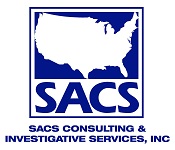The rise of on-demand TV and web browser control options is allowing consumers frustrated with TV and pop-up online ads to turn off unwanted solicitations. However, the advertising world is constantly looking for new ways to carry their message to the masses and one way that seems to work and to gain the attention of consumers is the use of celebrity endorsements. These endorsements seem to be flooding social media channels.
In fact, this has become such a mainstream way to market a product, that in 2015 the Federal Trade Commission (FTC) tightened up the rules and regulations surrounding these types of endorsements. The reason for this is that consumers are often left confused, not knowing if this is a legitimate recommendation from someone who really loves the product, or if it is a recommendation because the blogger or vlogger is being “paid” to mention the product. Either way, these endorsers are considered influencers because they can sway the public by posting comments on various social media channels.
Intentional Endorsements
Influencers are paid to endorse a product, either monetarily or with free products/services. They are usually bloggers or vloggers who have a large online following and they send these product endorsement messages to their social media followers. More bloggers and vloggers are cashing in on their online opinions (average of $187,500 per post for a vlogger that has up to 7 million followers on YouTube!).
Endorsements can come from well-known celebrities, sports figures, or online personalities (i.e. Kim Kardashian); or they can be everyday people who have a large following on a social media channel, such as YouTube, Instagram etc. When these types of endorsers clearly state that they are being paid to endorse a product, that’s acceptable according to the FTC. There is no deception, therefore the consumer is not being duped into thinking the review being shared on social media is a personal opinion based solely on the product/service’s merits. Where it gets tricky is the “everyman” endorsement, or when celebrity product mentions are stealth and are not disclosed.
There are ways to indicate an intentional endorsement including:
- Clearly stated #hashtags (i.e. #ad, advertisement, #sponsored, #spon)
- Verbal disclaimers at the beginning of a YouTube video
- Blog posts that clearly state that the blogger works for the company or that the company has given them free products/services to write the blog post
- Social posts that state the product/service was given in exchange for the individual’s online mention/review
Accidental Endorsements
In addition to intentional endorsements, there are also accidental endorsements. Have you ever heard the saying “accidentally on purpose”? This is a good description of how an accidental endorsement works. They are subtle and often don’t appear as endorsements, but they clearly are intended to promote a product/service.
Here are some subtle ways an online accidental endorsement can happen:
- An online personality makes a paid endorsement sound like a personal opinion
- An online personality casually holds a name brand product in a posted picture/video
- A vlogger doesn’t realize their recommendation is technically considered an endorsement because they were not “paid” money, but were given free products and/or services
Watchdogs
In today’s social media world, endorsements are closely scrutinized. In addition to the FTC, there are other organizations that act as watchdogs for this type of deceptive advertising. One such organization is TruthinAdvertising.org that polices social media channels to make sure the public is not deceived when receiving online recommendations.
A good example of how subtle endorsement breaches are being caught since the new FTC regulations came out was outlined in a New York Times article about ambiguous social media advertising. A well-known TV personality, Kylie Jenner, had to change the language on one of her Instagram posts because the language she originally used did not make it clear to the public that a rental property she was promoting had actually been given to her free of charge. The original post said “Thanks for the birthday home, @airbnb”. She had to change it to “Thanks for the gift of a lovely birthday home, @airbnb.” It was a subtle change, but the addition of the word “gift” made it clear that she received the rental property for free.
If you recommend a product/ service on one of your social media channels, be sure that you are adhering to the FTC guidelines and always provide clear disclosure.
About SACS Consulting & Investigative Service, Inc.
SACS Consulting & Investigative Services, Inc., offers an array of consulting services, security assessments, early intervention programs, educational materials and training programs. Call us at 330-255-1101 to speak with one of our professionals today!

